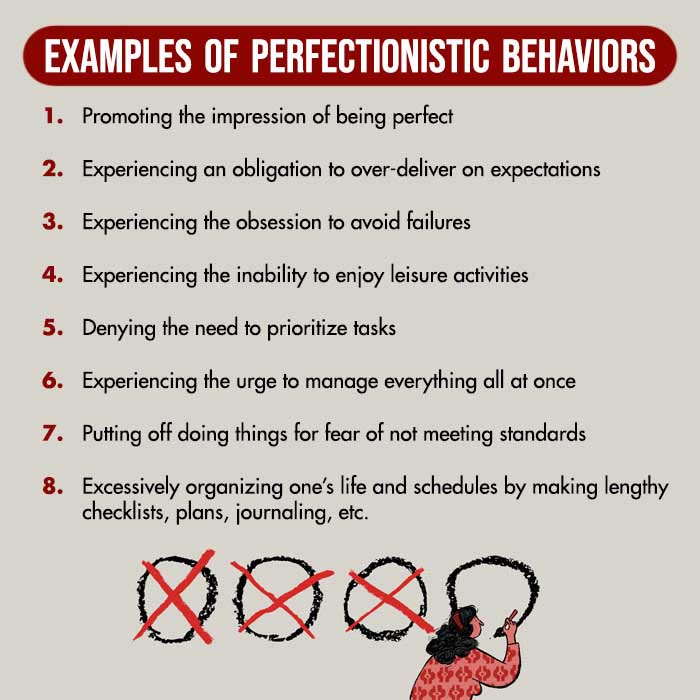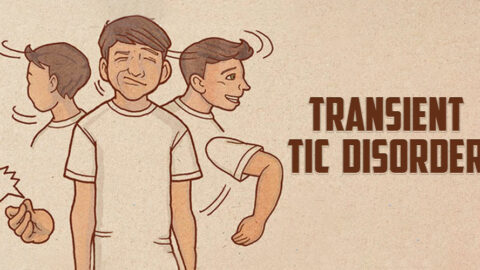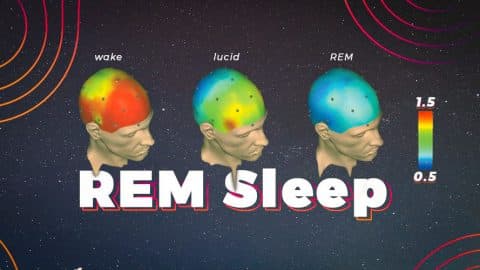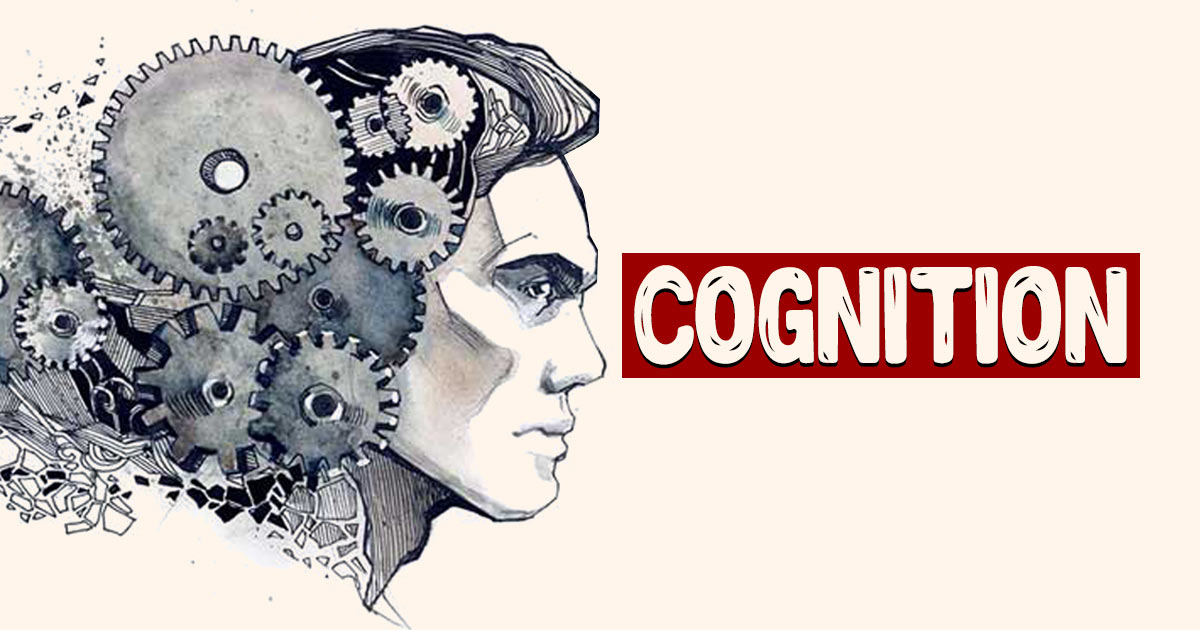Perfectionism is a personality trait characterized by a relentless pursuit of flawlessness and high standards. Perfectionists strive for excellence in everything they do and have a tendency to set unrealistic goals for themselves, compelled as they are by the need to feel, appear, and be perfect.
What Is Perfectionism?
In psychology, perfectionism is an innate personality trait marked by an extreme pursuit of perfection and flawlessness. While it is considered a positive attribute 1 Afshar, H., Roohafza, H., Sadeghi, M., Saadaty, A., Salehi, M., Motamedi, M., Matinpour, M., Isfahani, H. N., & Asadollahi, G. (2011). Positive and negative perfectionism and their relationship with anxiety and depression in Iranian school students. Journal of research in medical sciences : the official journal of Isfahan University of Medical Sciences, 16(1), 79–86. , it is often considered a maladaptive coping mechanism.
Negative perfectionism is commonly accompanied by critical self-evaluation, competitiveness, rigorous organization, as well as sensitivity to criticism and others’ evaluations.
Perfectionism is not a psychological disorder in itself and does not have a diagnostic criterion. However, increased levels of perfectionism have been linked to mental health issues, such as anxiety and obsessive-compulsive disorder (OCD) 2 Handley, A. K., Egan, S. J., Kane, R. T., & Rees, C. S. (2014). The relationships between perfectionism, pathological worry and generalised anxiety disorder. BMC Psychiatry, 14(1). https://doi.org/10.1186/1471-244x-14-98 .
Studies 3 Thomas, M., & Bigatti, S. (2020). Perfectionism, impostor phenomenon, and mental health in medicine: a literature review. International journal of medical education, 11, 201–213. https://doi.org/10.5116/ijme.5f54.c8f8 affirm that men often experience higher levels of perfectionist traits, in comparison to women. The latter, on the other hand, is associated with an increased ability to cope with this type of personality style.
Read More About Personality Here
Psychology Behind Perfectionism
Perfectionists are driven by the persistent and frequent urge to be flawless all the time. They tend to measure their self-worth by accomplishment and productivity and compulsively harbor unrealistic expectations and high standards.
They pressure 4 Kamushadze, T., Martskvishvili, K., Mestvirishvili, M., & Odilavadze, M. (2021). Does Perfectionism Lead to Well-Being? The Role of Flow and Personality Traits. Europe’s journal of psychology, 17(2), 43–57. https://doi.org/10.5964/ejop.1987 themselves into achieving these extremely ambitious goals and this strains their mental and physical well-being. They also display character traits 5 Smith, M. M., Sherry, S. B., Rnic, K., Saklofske, D. H., Enns, M., & Gralnick, T. (2016). Are Perfectionism Dimensions Vulnerability Factors for Depressive Symptoms After Controlling for Neuroticism? A Meta-analysis of 10 Longitudinal Studies. European Journal of Personality, 30(2), 201–212. https://doi.org/10.1002/per.2053 associated with narcissism, neuroticism, self-criticality, and imposter syndrome.
Read More About Imposter Syndrome Here
Case Example
Bonnie recently joined a top academic institution to study Economics. Throughout her life, she has been extremely disciplined and competitive, an overachiever with high standards. Now, in college, she desired to maintain the same values.
However, her perfectionism started to create issues for her. She became intolerant to criticism, extremely self-critical, and obsessively competitive. She consumed excessive time in finishing the simplest of tasks and organizing her loaded schedule.
Her unrealistic standards and work addiction left her with little leisure time. She simply refused to spend time with her family and friends or form new relationships. Her rigid thought processes not only held herself but also others to ambitiously high standards and goals.
These expectations were often unfulfilled and, most of the time, she met with disappointment. This hampered her mental health.
Case Analysis
It is evident from the aforementioned case that Bonnie shows the typical characteristics of a perfectionist attitude. This makes her obsessed and rigid about her life, choices, and activities. Her behavior also shows high scores of self-criticality, competitiveness, procrastination, and defensiveness.
Because of this, she experiences anxiety and cannot function properly in her daily life. All her traits point to her suffering from maladaptive perfectionism.
Signs Of Perfectionism
The common 6 Thomas, M., & Bigatti, S. (2020). Perfectionism, impostor phenomenon, and mental health in medicine: a literature review. International journal of medical education, 11, 201–213. https://doi.org/10.5116/ijme.5f54.c8f8 signs/symptoms of perfectionism include:
- An obsessive desire to act perfectly all the time
- Rigid thinking and obsessiveness with rules and regulations
- Experiencing intense anxiety over the simplest of tasks
- Taking excessive time to complete tasks
- Persistently setting lofty goals and unrealistic standards
- Focusing on the end results and ignoring the process of growing and striving
- Procrastination
- Over-competitive tendencies
- Excessive narcissistic but assurance-seeking behavior
- Excessive fear of failure
- High scores of self-criticality
- Extreme defensiveness to criticism
- An obsessive desire to control personal and professional relationships
- Struggling to relax and communicate openly
- Developing tendencies like workaholism and substance addiction

Perfectionism And Anxiety
Anxiety is a part of perfectionism. Perfectionists’ self-worth is often tied to performance, because of which they are always anxious about executing any task or responsibility that lacks their high standards.
The doubt and helplessness that accompany performance anxiety due to perfectionism deplete cognitive and emotional resources in perfectionists. In fact, anxiety sensitivity and perfectionism 7 Akram, U., Ellis, J. G., & Barclay, N. L. (2015). Anxiety Mediates the Relationship between Perfectionism and Insomnia Symptoms: A Longitudinal Study. PloS one, 10(10), e0138865. https://doi.org/10.1371/journal.pone.0138865 have common correlations in:
- Preoccupation with flaws, mistakes, and failures
- Obsession over personal standards
- Sensitivity to criticism
- High scores of self-doubt and self-inadequacy
Read More About Anxiety Here
Types Of Perfectionism
Studies categorize the common types 8 Maloney, G. K., Egan, S. J., Kane, R. T., & Rees, C. S. (2014). An etiological model of perfectionism. PloS one, 9(5), e94757. https://doi.org/10.1371/journal.pone.0094757 of perfectionist traits into the three following categories:
1. Socially prescribed perfectionists
Socially prescribed perfectionists are very perceptive of societal demands, believing that their self-worth depends on their perfectionism and perceived external standards.
2. Other-oriented perfectionists
Other-oriented perfectionists hold other people to high expectations and standards and base the latter’s self-worth on their perfectionism. They are highly critical of people who fail to meet these expectations.
3. Self-oriented perfectionists
Self-oriented perfectionists set high standards and expectations for themselves. High self-oriented perfectionism is the most positive type of perfectionism, widely associated with greater productivity and success, resourcefulness, assertiveness, and emotional functioning.
Healthy Vs Unhealthy Perfectionism
Healthy or intrinsic perfectionism consists of the quest for quality standards and realistic, high expectations. People with healthy perfectionism are considered to be highly motivated and extremely resourceful—blessed with enviable work-ethic and highly efficient social skill sets. Often exhibiting self-oriented perfectionism, they enjoy great productivity and success.
Unhealthy 9 Holden, C. L., & Jeanfreau, M. M. (2021). Are Perfectionistic Standards Associated with Burnout? Multidimensional Perfectionism and Compassion Experiences Among Professional MFTs. Contemporary family therapy, 1–11. Advance online publication. https://doi.org/10.1007/s10591-021-09605-6 or extrinsic perfectionism is often marked by the traits inherent in socially prescribed or other-oriented perfectionists. They are driven by chronic fears of failure and rejection. Their perfectionism often leads to low self-esteem, stress, broken relationships, and low quality of life.
Read More About Self-esteem Here
What Causes Perfectionism?
Research 10 Egan, S. J., Piek, J. P., Dyck, M. J., & Rees, C. S. (2007). The role of dichotomous thinking and rigidity in perfectionism. Behaviour research and therapy, 45(8), 1813–1822. https://doi.org/10.1016/j.brat.2007.02.002 attributes the root causes of perfectionism to a combination of inborn tendencies and environmental factors, including:
- In-born personality trait
- A history of childhood abuse and trauma
- Parental abuse, neglect, and abandonment
- Growing up with a perfectionist and frequently disapproving parent
- Feelings of low self-esteem and inadequacy
- Fear of social rejection and criticism
- Unhealthy patterns of attachment
- A history of mental health conditions like obsessive-compulsive disorder (OCD), stress disorders, etc.
Perfectionism In Children And Adults
Research reveals that, in recent years, children, adolescents, and young adults 11 Flett, G. L., Hewitt, P. L., Besser, A., Su, C., Vaillancourt, T., Boucher, D., Munro, Y., Davidson, L. A., & Gale, O. (2016). The Child–Adolescent Perfectionism Scale. Journal of Psychoeducational Assessment, 34(7), 634–652. https://doi.org/10.1177/0734282916651381 have been developing a great number of perfectionist personalities. In children and adolescents, perfectionism manifests as a fear of failure, overcompetitiveness, low self-esteem, and emotional disorders 12 Lozano, L. M., Valor-Segura, I., García-Cueto, E., Pedrosa, I., Llanos, A., & Lozano, L. (2019). Relationship Between Child Perfectionism and Psychological Disorders. Frontiers in psychology, 10, 1855. https://doi.org/10.3389/fpsyg.2019.01855 .
They either overwork themselves or withdraw from the simplest of tasks and activities. Common examples of perfectionist behaviors in children include sticking to tried-and-tested experiences and avoiding indulgence in new experiences like new sports or extracurricular activities.
Adults with perfectionist traits often have unrealistic goals and overly ambitious plans. They are extremely sensitive, self-aware, and competitive overthinkers with an obsession for control. They frequently equate their self-worth to their perfectionist tendencies and capacities to work. They are extremely afraid of failure and tend to overwork themselves in a bid to avoid drawbacks.
Effects Of Perfectionism
Moderately regulated levels of perfectionism are good for our everyday functioning. However, too much of perfectionist tendencies are associated with 13 Kelly J. D., 4th (2015). Your Best Life: Perfectionism–The Bane of Happiness. Clinical orthopaedics and related research, 473(10), 3108–3111. https://doi.org/10.1007/s11999-015-4279-9 :
- Self-sabotage tendencies, such as procrastination and poor time management
- Vulnerability to poor stress reactivity, burnout, and fatigue
- Strained personal and professional relationships
- Lower levels of life satisfaction
- Risk of chronic mental health issues
Mental Health Impact Of Perfectionism
People with perfectionist traits often suffer from cognitive and emotional difficulties, behavioral problems, and conflicting views about ability, self, and the meaning of failure.
They also develop serious physical health symptoms 14 Harper, K. L., Eddington, K. M., & Silvia, P. J. (2016). Perfectionism and Effort-Related Cardiac Activity: Do Perfectionists Try Harder?. PloS one, 11(8), e0160340. https://doi.org/10.1371/journal.pone.0160340 associated with cardiovascular diseases (CVD), coronary diseases, and mortality. High scores of this trait negatively impact daily functioning, professional dynamics, and social relationships.
Maladaptive perfectionists are also vulnerable to several mental health conditions 15 Nazari N. (2022). Perfectionism and mental health problems: Limitations and directions for future research. World journal of clinical cases, 10(14), 4709–4712. https://doi.org/10.12998/wjcc.v10.i14.4709 such as:
- Chronically low self-esteem
- Performance anxiety
- Mood disorders like depression, bipolar depression, etc.
- Anxiety, especially, social anxiety [Read more]
- Obsessive-compulsive personality disorder (OCPD)
- Paranoid personality disorder (PPD)
- Narcissistic personality disorder (NPD)
- Eating disorders [Read more]
- Sleep disorders [Read more]
- Stress disorders
- Work addiction and burnout [Read more]
- Substance use disorder, etc.
How Is Perfectionism Treated?
Perfectionism is a character trait that can be addressed with self-reflection and healthy coping strategies. However, in cases of chronic tendencies of perfectionism, the affected individual is encouraged to seek medical help.
In recent years, cognitive-behavioral therapy 16 Papadomarkaki, E., & Portinou, S. (2012). Psychiatrike = Psychiatriki, 23(1), 61–71. has gained grounds for addressing the signs of perfectionism. It helps perfectionists to challenge their negative belief systems and thoughts. It helps them to reflect on and reorient their perfectionist tendencies and be more accepting of flaws and errors.
The therapeutic sessions are aimed to enhance the desire to lead a conscious and meaningful life. It also helps them develop effective self-help strategies to handle emergency situations. Other interventions 17 Suh, H., Sohn, H., Kim, T., & Lee, D. G. (2019). A review and meta-analysis of perfectionism interventions: Comparing face-to-face with online modalities. Journal of counseling psychology, 66(4), 473–486. https://doi.org/10.1037/cou0000355 for perfectionism include:
- Psychodynamic/interpersonal therapy (PI)
- Exposure and response prevention (ERP)
- Acceptance-based behavior therapy (ABBT)
How To Overcome Perfectionism
Consider the following measures 18 Kaviani, N., Mohammadi, K., & Zarei, E. (2014). The Relationship between Perfectionism and Coping Strategies in Drug-dependent Men. Addiction & health, 6(1-2), 45–53. for overcoming perfectionism:
- Create an environment, at work or at home, where you feel safe and comfortable.
- Consider following a well-balanced eat-sleep-work schedule to care for both your mental and physical health.
- Understand that flaws, errors, and failures are common parts of life.
- Stop equating errors or drawbacks with personal defectiveness. Engage in positive self-talk.
- Use constructive coping skills when dealing with disappointments.
- Recognize and accept that not everyone will share your personal high standards.
- Become aware of your tendencies and try to alter them. Examine your competitiveness and, when necessary, decrease your emphasis on winning every time.
- Identify your strengths and weaknesses. Work to better the positive attributes and challenge the negative ones.
- Celebrate the victory of “baby steps” when it comes to changing your maladaptive perfectionist approaches to task management.
- Avail mindfulness and relaxation techniques to help yourself relax.
- If necessary, avail therapy.
Takeaway
Perfectionism, though a somewhat socially valued trait, can turn into a nightmare if a person obsessively experiences and acts out the need to be perfect. Therefore, while certain levels of perfectionism should be nurtured, excessive perfectionism should be put to check. If left untreated, it can develop into a full-blown mental health condition (like OCD), hampering a person’s quality of life and relationships.
At A Glance
- Perfectionism is a personality trait characterized by the drive to achieve perfection.
- It is not a diagnosable mental health condition.
- There are three types of perfectionism.
- Common causes of perfectionism include parental perfectionism, childhood abuse, fear of social rejection, etc.
- Self-help tips to avoid perfectionism include self-reflection and developing healthy coping strategies.
Frequently Asked Questions (FAQs)
1. Do perfectionists have higher IQs?
Research frequently links perfectionists with higher IQs and cautious personalities.
2. Is perfectionism a mental disorder?
Perfectionism is a personality trait and not a psychological disorder in itself. However, increased levels of perfectionism have been linked to mental health issues, such as anxiety and obsessive-compulsive disorder (OCD).
3. What personality disorder is perfectionism?
Obsessive-compulsive personality disorder (OCPD) is a personality disorder characterized by extreme perfectionism, order, and neatness.
4. What do perfectionists struggle with?
Most perfectionists struggle with mental health conditions like anxiety, depression, lower life satisfaction, and low self-worth.
5. Is being a perfectionist a good thing?
Moderate levels of perfectionism have their benefits. However, being too much of a perfectionist is not a good thing. This personality trait is linked to burnout, depression, anxiety, and mortality.
6. Are you a perfectionist?
If you tend to accomplish each task perfectly all the time and feel intensely afraid of being judged by others, then you may be a perfectionist.




























